How To Tell When Someone Is Remotely Accessing Your iPhone

We use our iPhone's for staying in touch with friends, sharing personal moments with family, and we need our phones for business. But what happens when hackers have remote access to your to your iPhone and what are the steps to discover suspicious activity before damage is done?
In this article, we'll tell you how you can tell if someone else is able to access your iPhone remotely.
12 Ways To Tell If Someone Is Remotely Accessing Your iPhone
You can watch for these common signs that someone has access to your iPhone.
1. Abnormally Short Battery Life
All the apps a hacker may use to access your iPhone run constantly in the background. Even if they are not actively recording from the microphone or camera, these apps need to upload your data to the cloud for later access. Because the phone never enters its normal sleep mode, battery life can be dramatically shortened and you will want to watch for this tell-tale sign that someone is controlling your iPhone remotely.
2. Hot Battery When In Sleep Mode
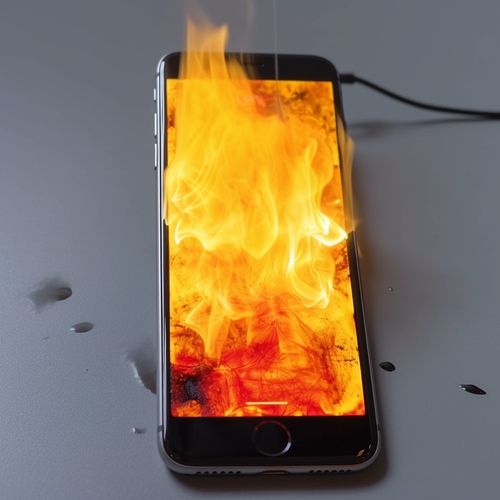
We have all felt our phones warm, or even hot, to the touch after extended periods of use. Video streaming, gaming, or even a long phone call can cause your phone to become warm to the touch. This is all normal because smartphones have very poor cooling capabilities.
However, your iPhone should never be warm idle. Warmth is an indication something is causing significant CPU activity, which is typical when someone is spying on your phone. There are no legitimate reasons for significant resource usage when the phone is in sleep mode.
3. Excessive Data Usage
When you have spy software installed, it will automatically upload your data to a website while running in the background. Because it is not filtering what is sent, this results in a large amount of network activity and data usage. If your usage patterns have not changed but you notice that you are using your data plan faster than normal, you should investigate the cause further.
4. Slow iPhone Performance
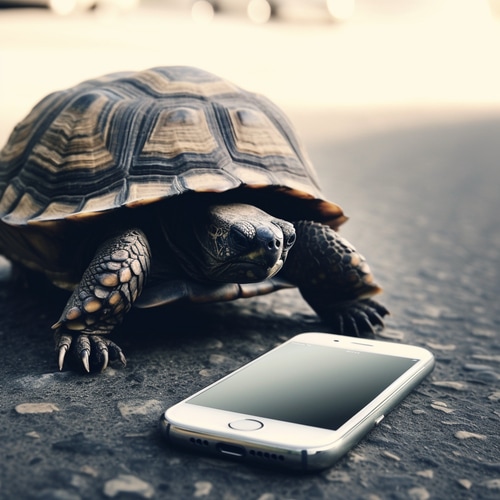
The same heavy work load that can cause overheating, short battery life, and high data consumption will also prevent your device from performing well and will result in performance issues.
Spy apps must be able to track your activities and remain connected to the Internet at all times to be able to upload all of your private information. Doing this while always keeping other applications performing well is nearly impossible.
5. Unexpected Reboots
Poorly designed spyware may cause crashes and force a iOS operating system reboot. In other cases, updates to the software may require a unscheduled reboot. A simple way to spot these is to ensure you are prompted for permission before installing any system update so anything causing a reboot without your knowledge will be sure to attract your attention.
6. Difficulty Turning Off iPhone
Most spy apps are so deeply embedded in your phone that it may be unable to close quickly as the software may have to finish writing files, uploading data, or preparing for shutdown.
Fortunately, most people have a feel for how long powering off their phone usually takes and it easy to spot the anomaly if it takes longer than usual. Be sure not to overlook this subtle sign your iPhone has been hacked.
To investigate this problem further, manually close all open apps 2-3 minutes before shutting down. When you shut down your iPhone, you will know that nothing should be running so if the shutdown seems to hang then you are very likely to have something running in the background.
7. iPhone Shows Signs of Activity in Standby Mode
Some spyware will simulate user actions, which could cause your iPhone's screen to light up briefly. If no notifications are found, it's time to start being suspicious.
It is normal for an iPhone's screen to light up when a call or message is being received, but it should not come on for no reason.
8. Unrecognized Outgoing Messages
Hackers can not only read you messages but also send them. While that seems like an odd thing to do, it's very useful for a jealous spouse trying to find out if their husband was cheating with a contact listed in his phone. It can also be used to try to get your contacts to trust a link enough to click on it and become infected themselves.
These messages are then quickly deleted and the phone's user will not know they existed. If you notice an outgoing message you do not remember sending, consider the context of the message and why it might have been sent. In these circumstances you can not only tell if anyone has remote access to your iPhone but also deduce who may be behind the hack.
9. Suspicious Apps or Files
If you notice icons for anything you don't remember installing, or files that appear without explanation, it is worth investigating further to see if your iPhone has been compromised.
It's always good to not install more apps than you need so you can easily spot new icons.
10. Pop-ups
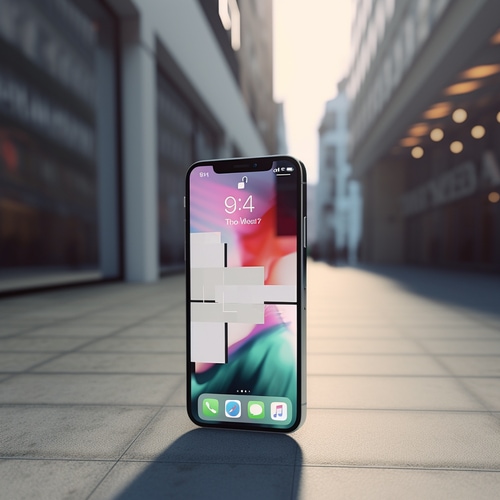
Not all iPhone malware is simply for someone to be able to access your iPhone, and not all of it stays in stealth mode as well as you might assume.
If pop-ups are seen outside of web browsing, it's a near certainty that your phone has adware, malware, or spyware installed.
11. Unusual activity
Even if a hacker is not using a target device very often, it may still show signs of unusual activity, especially if it's being spied on. If a smartphone switches to airplane mode when there is no reason for it to do so, this is the most common sign to look out for. You should also keep an eye out for blocked calls and messages that aren't being delivered.
12. Unexplained Audio or Video Recordings
Advanced iPhone spy apps have features to allow a hacker to spy on you by activating the microphone or recording video from the front or rear-facing cameras. Typically, these recordings will be kept in a hidden storage area that you will not be able to see. However, there are times files may temporarily be visible to you and you should assume the worst if you see audio or video recordings you do not recognize.
How To Stop Someone From Being Able To Access Your iPhone
Now that you know how to tell if someone is monitoring your iPhone, here's what to do to prevent it from happening.
Keep your iPhone with you at all times
The typical course of attack is to simply borrow your phone or wait for you to leave it unattended and install a spy app on your device.
While you may think a passcode would prevent your phone from being used without your permission, consider how many times you may have sent a message and then set your phone down and walked out of the room before the screen turned off. If someone picked it up as soon as you left, they could not only browse through your messages but also install an app in a matter of minutes.
Never let another person use your iPhone
You should not ever share your phone. The truth is, most of the time people are spied on by people they know.
Usually, it's a girlfriend, wife, or husband who suspects their partner is cheating. It can even be a friend with an unhealthy obsession or an acquantance at work.
Do not let anyone use your phone where you can't see them. Maybe you are letting a friend make a phone call because their battery died, but don't let them get out of your sight for more than a few seconds.
Never use public Wi-Fi without a VPN
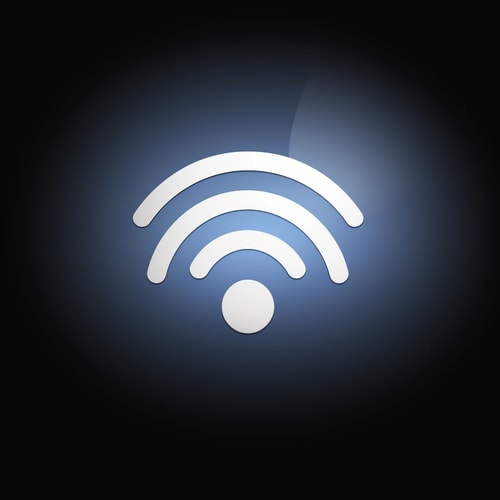
Public WiFi hotspots are convenient and they can save data usage, but they offer no protection against hacking. Between the possibility of your traffic being intercepted and the risk of unwittingly making a connection to a hacker's spoofed hotspot and account passwords, it's best to just avoid public Wi-Fi altogether.
If you must access WiFi hotspots, always connect with a VPN so that all of your Internet traffic is encrypted.
Disable microphone access for all apps
Many supposedly legitimate apps set themselves to have microphone permissions enabled. This opens up the possibility the app is spying on you but it also raises the possibility that malicious software could piggyback on to the app and use its permissions to turn the microphone on.
Take the time to go through your settings and disable microphone and camera access for anything that does not regularly need to use them.
Install a secure web browser
Web browsers are a primary entry point for attackers. Using a more privacy focused web browser like Brave, Firefox, or DuckDuckGo can provide some degree of protection from hackers.
Keep iOS and apps up to date
Hackers commonly rely on exploiting unpatched security holes in old versions of apps and the iOS operating system. Even if it will not provide a point of entry, an iOS update may break an already installed spy app or prevent one from being installed as spyware makers and Apple are constantly trying to out-smart each other.
Do not click on suspicious links
Phishing is the most common hacking technique. It doesn't require skill, only the ability to trick the person into clicking on a link or installing an app.
Never click on a link in a text message or from an e-mail address you don't recognize. Even if you do know the sender, do not select to download, install, or give additional permissions if prompted to do so.
Turn off Bluetooth and Wi-Fi
Any feature that is turned on when not in use is just inviting exploitation. That's especially true for wireless communications. Leaving Wi-Fi or Bluetooth on means that your device is constantly trying to ping other devices and broadcast its presence to anything around.
Make a habit of turning off WiFi and Bluetooth as soon as they are not needed.
Delete un-used apps and files
Junk apps are commonly installed by wireless providers or may even be bundled with legitimate software or OS updates. In other cases, they are entry points for spyware.
Any apps you don't use are serving no purpose and are only an entry point for hackers. Removing anything you don't use is good for performance and good for your privacy.
Change your Apple ID and iCloud password regularly
Many iPhone spy apps rely on using your iCloud account to spy on you. By changing your Apple ID password regularly you can stop someone from accessing your iPhone remotely via iCloud.


 How To Stop Someone Else From Accessing Your Phone Remotely
How To Stop Someone Else From Accessing Your Phone Remotely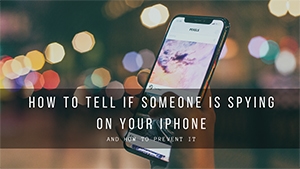 How To Tell If Someone Is Spying On An iPhone
How To Tell If Someone Is Spying On An iPhone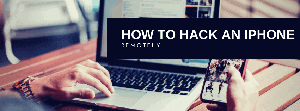 How To Hack Someone's iPhone
How To Hack Someone's iPhone Best Apps To Watch Someone Else's Phone
Best Apps To Watch Someone Else's Phone